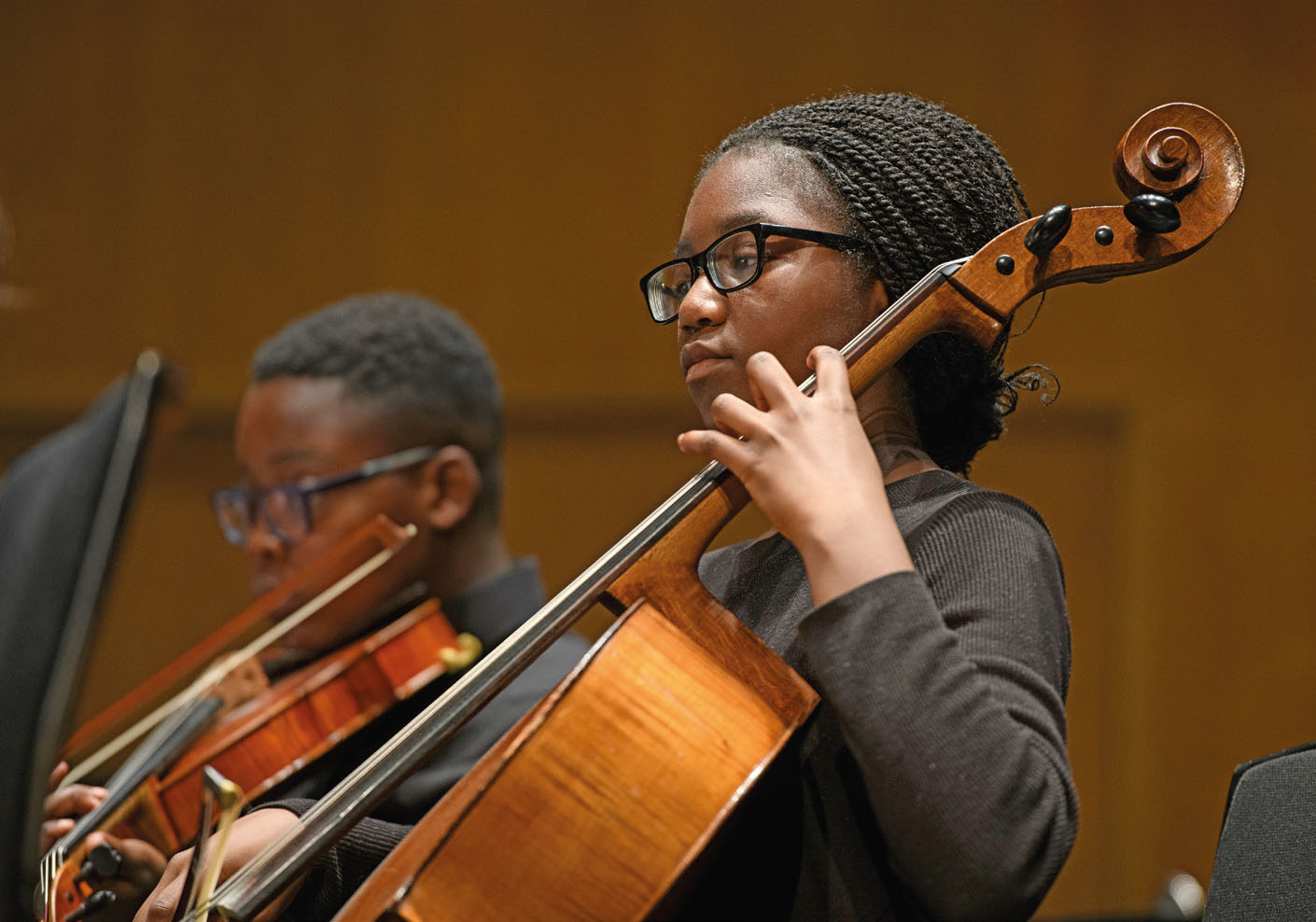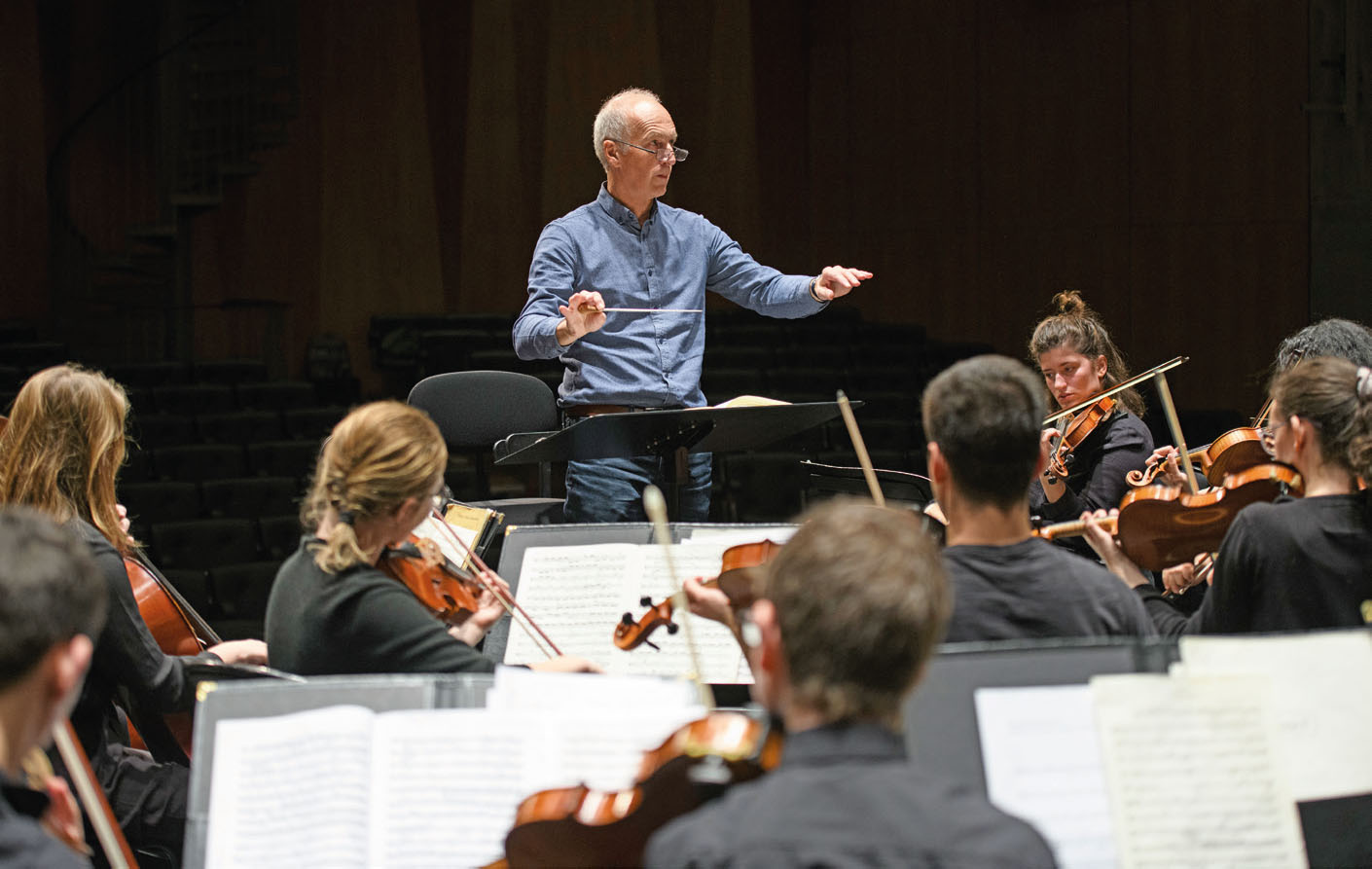
This year marks the Silver anniversary of the English Schools’ Orchestra (ESO). The orchestra's beginnings date back to 1994 and for the past 25 years ESO has existed to provide opportunities for young musicians and singers still in full-time education. Its principal activity is an annual residential course and concert which takes place in October. Within the UK, the orchestra has performed at the Cadogan Hall, St John's Smith Square, Southwark Cathedral, London Barbican and Birmingham Symphony Hall to name a few. It's safe to say that the ESO means business and is working to maximise the potential of young players.
Social mobility
The orchestra was founded with a mission to encourage schools – those in the state sector in particular – to put forward highly talented students for a wider and more challenging experience than they could obtain locally. In particular, the orchestra reached out to inner-city and more isolated rural areas where local education authority orchestras were non-existent. Robert Balchin, the ESO's founder chairman, has explained that in such areas ‘fewer young people seem to have experience of playing in small ensembles, which demand the need to concentrate for extended periods, to co-operate with others and to develop resilience, all skills necessary for playing in a large orchestra, especially one performing ambitious works’. In the past, Balchin has worked as a teacher, lecturer, and senior education policy adviser to the government. He now sits in the role of president of the organisation.
The ESO differs from other youth orchestras in that it is entirely privately funded by enthusiastic patrons and generous donors and therefore keeps charges and fees to a minimum. Diane Davies, the orchestra manager, adds: ‘We are particularly concerned to support musicians from disadvantaged backgrounds and offer bursaries so that no one is denied a place.’
Repertoire ranges from iconic Beethoven, Vaughan Williams, Prokofiev and Tchaikovsky to new commissions, concertos with soloists such as Guy Johnston and Alison Balsom, and large-scale choral works in collaboration with the English Schools’ Choir. Robert Pepper, the orchestra's musical director, ensures that music for the annual concert is always chosen to present a challenge to the musicians. He is, however, confident that extensive tuition and sectional rehearsal being given during the course by professional tutors enables such challenges to be met with resounding success. He gives the example of performing Malcolm Arnold's second symphony in his presence – when he was a patron of the orchestra – at Birmingham Symphony Hall. ‘Over the years we have learned to take risks and challenge the young musicians,’ explains Pepper. ‘They always rise to it. The stability of our core team of course staff and orchestral coaches has been key to the success of the orchestra. We have been indebted to Haberdashers’ School and Dame Alice Owen's School for providing sponsored accommodation for the courses and to our amazing trustees under the leadership of [Balchin].’
 The tuition offered by the orchestra results in exemplary musicians
The tuition offered by the orchestra results in exemplary musicians
Skill-building
Aside from performing both nationally and internationally in first-class concert halls with renowned soloists, orchestra members are sure to leave with a host of non-music-related memories and lessons learned – each residential course has a fully developed programme of activities outside of rehearsal and coaching. Last year's included yoga sessions and a games night, which may or may not have involved feeding jelly to a fellow player while wearing a blindfold. For those who might find the social aspect more daunting, the ESO now has a mentoring scheme whereby past students return to support current students during the course and concert.
Looking back on the past 25 years, Davies notes some highlights, including tours to Canada and Australia, the latter of which was a ‘sellout’. The orchestra has grown in terms of reach and output. Since its beginnings, the musical endeavours have expanded from one, yearly concert to a host of new opportunities. Perhaps the main signifier of its success is that there is now an ESO alumni professional orchestra, the English Young Artists’ Sinfonia, (EYAS). The alumni chamber sinfonia engages in much outreach work to encourage young pupils from disadvantaged and low-income backgrounds across London. The ESO has partnered with Andrew Lloyd Webber's Music in Secondary Schools’ Trust (MiSST) Create initiative. This saw EYAS provide composing and conducting opportunities for GCSE and A Level students in schools in London boroughs.

The English Schools’ Orchestra played its 2018 annual concert in the Southbank Centre's Purcell Room
In 2004, the orchestra celebrated its tenth anniversary with a concert in the London Barbican. This year the celebrations will be grander yet, with a gala concert at the Cadogan Hall on 3 November. Challenging repertoire can be expected, and many alumni and special guests are likely to be in the audience. The orchestra is currently ‘in negotiations with an exciting young soloist’, leaving it open to speculation as we await a future announcement.
Following its celebrations, the ESO will be looking ahead to another 25 years of concerts and courses. The orchestra has plans to commission more new music. In 2014, the orchestra commissioned a piece to commemorate the First World War – ‘Remember’ by Edward Gregson. A greater number of young composers and conductors will, in future, be able to become involved with the orchestra as a further partnership with MiSST will provide composing and conducting opportunities for GCSE and A Level students in schools in Newham, Lewisham and Islington through 2019 and 2020. The next composing competition will take place in 2020 and the EYAS will be the house orchestra, allowing alumni from the ESO to continue in the same spirit of an enthusiastic approach to new music. Davies also mentions plans to tour Malaysia following the success of previous tours: ‘We are keen to expand our international activities, as well as to develop further our education work in schools’.
Admission is by written application and teacher recommendation for those in England aged 13 to 18, of Grade 8 standard or above. Applications for 2019 are now open, and the form can be completed online, prior to the course and concert in the autumn. In the spring, EYAS will be performing as part of another anniversary: 75 years of The City Music Society Young Artists Series, a season of free admission lunchtime concerts at St Bartholomew the Great in London, showcasing emerging talent in the UK. From formative teen years to music college graduate level, the ESO is committed to providing a platform for high-level performing of classical repertoire that can light a creative career.
Here's to the next 25 years!








